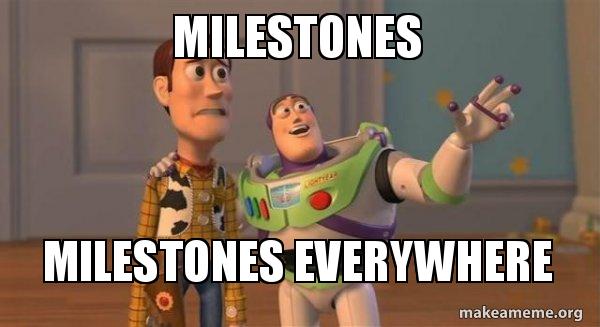What is The Social Coding Circle?
You might be wondering, what is Social Coding and how do these circles work? Well Inside the Giveth ecosystem there are 4 main circles:

The first 3 are pretty self explanatory (here for more), so let’s talk about Social Coding.
Our philosophy: the best way to develop tools for building a DAC is to build a community of altruistic developers. So how does one build a community of altruistic developers ?
Well the way we see it is to give them a space where they can play, where they can try to build whatever they want and over time the tools should sort themselves out. At its most basic level the responsibility of Social Coding is to oversee anything beyond basic DApp development. Think of it as a zesty combination of R&D, coding bootcamp with a hint of community outreach.
Each circle has a lead, Quazia is Giveth's Social Coding lead and his time is spent absorbing as much information as possible from the community and then working to translate that information into altruistic action. From his experience the best way to get people involved in development is by asking what each individual is passionate about and letting them build it, seeing what’s working, then connecting the loose ends. After seeing the questions people ask inside the Social Coding circle and uncovering how people actually learn the content it was proposed to create tutorials with video modules that assist people in learning to code DApps, more to come on that.
The general cycle looks like this:
Each month the Giveth team has a brainstorming session. (Join our next one) During these sessions everybody discusses what they want to work on.
Projects that get a lot of interest are greenlit, some projects continue to be developed within social_coding, others don’t.
Our goal (ideally) is for projects with a minimum of two people interested to move forward . Obviously this will not always be the case — people will pursue what they feel impelled to.
On the flip side if nobody jumps at the idea of your proposal there are often projects placed into the running for devs to contribute to that are important to advancing the Giveth ecosystem, because we have found that most people derive satisfaction from building something useful. Some devs are deterred by this and others stubbornly persist, occasionally that’s a good thing ;)
Typically the more experienced developers will take the lead on a project they feel passionate about, less experienced developers are guided to contribute to others passion projects in a way that feels fun and collaborative. The leader's role is to help make this process as smooth as possible. Once projects begin to take form they will be given Milestones, we can tell once they are formed by their clear and positive impacts on the future of DApp development.

Social_coding should be thought of as a place where hypotheses are tested, rapid solutions achieved and long-term projects live elsewhere.
We’re about launching projects and connecting them through the community!
Here are some projects currently in development:
Points Bot :
Enables communities to dish our “points” or tokens through twitter, riot, or any other public digital channel in a way that’s secure, Lead: Alon Bukai
BrightID :
Attempts to solve proof of uniqueness, using sybil-resistant identity graphing. Very ambitious, very needed, Lead: Adam Stallard
Smart Marriage :
Aims to create a user interface for the Smart Marriage contracts used to officiate marriages through the use of a multisig, Lead: Bowen Sanders
KanEth :
Aims to allow people to attach value in ether/erc20/erc777 to WeKan boards, Lead: KingFlurkel
ERC777 Support for Parity Bridge:
This is a support for the parity-bridge with the aim of trying to play with Parity’s bridge solution more. Checkout the ScalingNow! Series, Lead: Shared
EthWrapper:
ERC777 deployed as a service using EIP820 , Send ETH in, get wrapped eth; send wrapped eth, get ETH 💝Boom 💥 Lead: Shared
OpenReward repository:
Support for Dividend payouts, time-based payouts, and the ‘guts’ to move RewardDAO on chain (given a scaling solution), Lead: Shared
Multi-send-cli/UI:
Building out the tool being used to handle Giveth payments while a scaling solution is built. Long-term this will be useful for people executing batch payments to save time and gas, lead: Shared
DApp tutorials:
Building out materials for getting people up to speed with development. Setting up basic repos as starting points for common patterns, researching what’s been done previously and building on it, lead: Quazia
Long term we’ll be playing with other projects around identity, scalability, incentivization and governance: anything without a project owner is up for grabs. Otherwise incremental progress will be made whenever possible.
Interested in learning DApp development or contributing to cool projects? Drop into the social_coding Riot channel, tell us what you’re up to and get started building awesome stuff.
Join our community: by tackling interesting problems like this one you can help us positively impact charitable giving forever!
- Find us on Riot or Slack
- Discover our Site and Wiki
- Fork our code on Github
- Follow us on Medium, Facebook, Twitter and Reddit
Help us Build the Future of Giving: 🤲🏼 Donate directly 🤲🏼 or buy a Ledger with our affiliate link ⏎
Upvoted ☝ Have a great day!